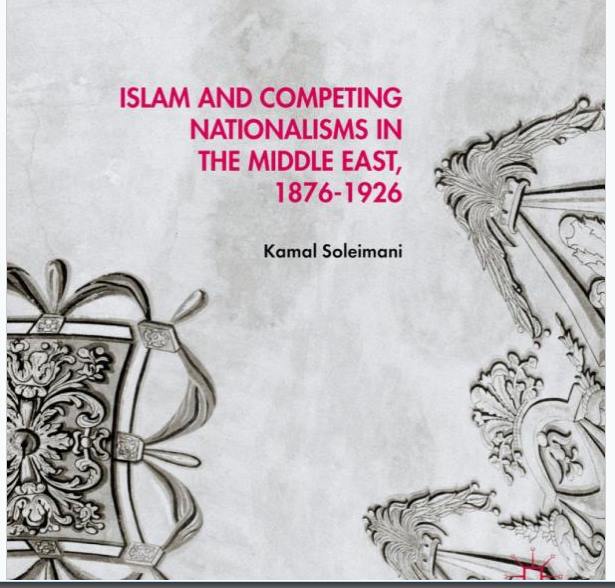“To be ignorant of the past is to be forever a child.”
—Cicero
What is best for the Kurds: Islam or Nationalism?
That question gnawed at me as I read, Islam and Competing Nationalisms in the Middle East, 1876-1926, a scholarly book by Kamal Soleimani analyzing the place of faith and identity in the politics of late Ottoman Empire.
It educated me about Islam, the religion of Mohammed, and Middle Eastern peoples, the wayward children of God. It left me, in Cicero’s words, less of a child.
The author highlights two influential Kurds whom Mohammed would have proudly welcomed into his mosque—but whose Kurdish heritage made them suspect when they came of age at the dawn of rising identity politics.
One is Sheikh Ubeydullah of Nehri (1830-1883), who spearheaded the first modern Kurdish national struggle for recognition as the concept of nation-state travelled, yes, very slowly, from its birthplace in Europe to the Middle East.
The other is Said Okur of Nursi (1877-1960), a Kurdish theologian whose “Nurcu movement” has played a critical role in reviving Islam in Turkey.
Had they lived in the same time period, they would have enjoyed each other’s company and might have become best friends.
For reasons beyond their control, they became warriors fighting Russians in eastern fronts of Ottoman Empire. The first survived his ordeal, but the second was captured alive and imprisoned in a Siberian camp for two years.
For Ubeydullah the lessons of Russian-Turkish War of 1867-68 were sobering. Feeling slighted, he accused the Ottomans of deliberately denying his troops their rations. Eventually, calling them “munafiqs,” meaning fake Muslims, he told his fighters they were justified to take up arms against them.
He opened his heart to an American missionary:
“The Kurdish nation, consisting of more than 500,000 families, is a people apart.”
His uprising, alas, was nipped in the bud and Ubeydullah was captured and exiled to Arabia, the Siberia of Ottomans.
Said’s experience with the Turks was not that different.
The renowned scholar initially wanted to help the Ottomans, urging his sultan to let him start a university in Van with instruction languages in Arabic, Kurdish and Turkish.
The sage who sought to fight ignorance with the light of education was instead thrown into an insane asylum.
Someone should have told him about Namik Kemal, a Turkish “intellectual,” who as early as 1878 urged his government to “eliminate all existing languages” except for Turkish!
He asked: “Is it right to hand the subjects of the empire their grammar books that could be used as spiritual weapons for separation?”
He knew it was difficult to “eliminate” the Greek and the Bulgarian languages, given their powerful patrons in European capitals, but the languages of Muslim subjects of the empire were fair game.
We are not told if Said knew of this Turkish misanthrope, whose name now adorns public buildings in Turkey, but he could read the writing on the wall, and wrote of his of visit to the capital of Caliphate, Istanbul.
“As someone who grew up in the mountains of Kurdistan, I imagined it to be filled with beauty,” he said.
But he was shocked to see: “Istanbul is nothing other than a savage man with a fearful and vicious heart, disguised in a civilized cloak.”
The Europeans had a more telling name for it, the “sick man of Europe.”
Fortune smiled on the Albanian language of the empire when its speakers managed to free themselves from the Turkish yoke in 1912.
Five years later, the same happened to the Arabic language when Great Britain gave a helping hand to its speakers and rescued the language of Quran from the death sentence of the Turks.
The speakers of Kurdish and Laz were not as lucky.
Their languages remain shackled like wild animals in modern zoos.
As to my probing question of what is good for the Kurds, Mr. Soleimani never gets to it directly, but admonishes his colleagues, primarily Turks and a few Americans, not to let their prejudices or Orientalism color their research and besmirch their reputations as enlightening scholars.
Coupling his own scholarship with a keen understanding of human nature, he says Kurds, like their neighbors, have asserted their identity as well as their faith in keeping up with their more powerful neighbors, Turks and Persians alike.
It is a painstakingly well-researched book holding a mirror to 50 years of poignant Kurdish history (1876-1926) that our neighbors would love to bury to prove Cicero right so that they could manipulate us and abuse us, alas, often with our consent, as they do now.
Investing in history should be our calling if we want to be safe and free.
This article originally appeared in Rudaw daily.
November 5, 2016 — Kani Xulam @AKINinfo



0 Comments